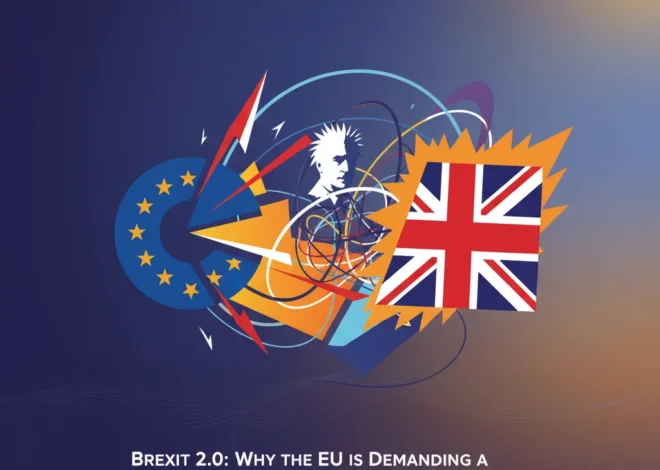
The People’s Budget: Decoding Public Demands vs. Economic Reality Ahead of the UK Budget
Introduction: The Nation Holds Its Breath
As the UK braces for the Chancellor’s next Budget announcement, the national conversation intensifies, moving from the corridors of Westminster to the kitchen tables of households across the country. This isn’t just a day of complex fiscal charts and political theatre; it’s a moment that directly impacts the financial reality of millions. The Budget sets the course for the nation’s economy, influencing everything from the price of a weekly shop to the long-term viability of a business and the health of the stock market. But what do the people—the very individuals these policies are designed to serve—actually want?
A recent BBC News report provides a compelling snapshot of the public’s wishlist, revealing a complex tapestry of hopes, frustrations, and pragmatic demands. From a couple earning a combined £60,000 desperate for the abolition of stamp duty to a single mother prioritizing public services, these voices highlight the fundamental tension at the heart of modern economics: the desire for lower taxes versus the need for robust public spending. This article delves into these perspectives, offering an expert analysis of their feasibility, their potential economic impact, and what they tell us about the state of personal finance in the UK today.
The Great Housing Debate: To Scrap Stamp Duty or Not?
One of the most prominent calls from the public is the plea to scrap the Stamp Duty Land Tax (SDLT). For many, particularly aspiring homeowners and those looking to move up the property ladder, this tax represents a significant barrier. Consider the case of a couple with a household income of £60,000, who see stamp duty as a “huge cost” that penalizes ambition (source). Their sentiment is widely shared, but the economic implications of such a move are far from simple.
From an economic standpoint, stamp duty is an inefficient tax. It disincentivizes transactions, leading to a less dynamic property market. People may be reluctant to move for a better job or to downsize in retirement because of the hefty tax bill, leading to a suboptimal allocation of housing stock. Abolishing it could, in theory, lubricate the market, boost transaction volumes, and create positive ripple effects for related industries like construction, removals, and home furnishings.
However, the counter-argument is formidable. SDLT is a major source of revenue for the Treasury, bringing in billions of pounds annually. Scrapping it would leave a significant hole in public finances that would need to be filled by raising other taxes, cutting public spending, or increasing government borrowing—all of which come with their own painful consequences. Furthermore, critics argue that removing stamp duty could simply pour fuel on the fire of house price inflation. The tax saving might be quickly absorbed into higher asking prices, benefiting existing homeowners (sellers) at the expense of new buyers, thus failing to improve affordability in the long run. This delicate balance between stimulating the market and managing fiscal responsibility is a core challenge in economic policy.
The Canary in the Coal Mine? Why MicroStrategy's Plunge is a Bigger Signal Than Bitcoin's Stumble
A Nation Divided: Tax Cuts vs. Public Services
The desire for tax relief extends beyond the property market. The BBC report highlights a broad spectrum of public opinion on taxation and spending, reflecting the diverse financial circumstances of the population. We can summarize these viewpoints to better understand the competing priorities facing the Chancellor.
Below is a summary of the different perspectives highlighted in the report:
| Profile | Financial Situation | Primary Budget Wish | Economic Rationale |
|---|---|---|---|
| Aspiring Homeowners | £60,000 joint income | Scrap Stamp Duty | Reduce the upfront cost of moving and stimulate the property market. |
| Single Mother | Relies on Universal Credit | Protect funding for public services (e.g., NHS, schools) | Prioritize social welfare and support systems over tax cuts that may not benefit low-income families. |
| Small Business Owner | Running a cafe | Reduce National Insurance contributions | Lower the cost of employment to encourage hiring and business investment. |
| Pensioner | Fixed income | Maintain the “triple lock” on state pensions | Ensure that pensions keep pace with inflation and wage growth to protect the purchasing power of retirees. |
This table illustrates the classic dilemma of public finance. A cut to National Insurance, as desired by the business owner, directly conflicts with the single mother’s plea for more robust funding for the NHS, as NI contributions are a primary source of its funding. Similarly, maintaining the costly pension “triple lock” puts further strain on a budget that could otherwise be used for tax cuts or other investments. These are not just line items on a spreadsheet; they are deeply political and social choices about who bears the tax burden and who receives the benefits of public spending. The Chancellor’s decisions will inevitably create winners and losers, impacting consumer confidence, investing behaviour, and the overall economic outlook.
The Macroeconomic Context: Beyond the Household Budget
While individual stories bring the Budget to life, it’s crucial to place them within the broader macroeconomic context. The Chancellor isn’t just balancing the books of UK plc; he’s navigating a complex global environment of geopolitical instability, fluctuating energy prices, and evolving monetary policy. Every decision made has a ripple effect that touches upon banking, international trade, and the attractiveness of the UK as a place for investing.
For instance, the level of government borrowing announced in the Budget directly influences the UK’s bond market. Higher-than-expected borrowing can lead to a sell-off in government bonds (gilts), pushing up yields. These yields are a benchmark for lending rates across the economy, meaning that profligate government spending can lead to higher mortgage rates and business loan costs for everyone. This is a key reason why financial markets and the Bank of England watch the Budget so closely.
Furthermore, the Budget can signal the government’s long-term vision for the economy. Will it prioritize investment in green energy, digital infrastructure, and financial technology (fintech)? Policies that encourage innovation—such as R&D tax credits or regulatory sandboxes for new technologies like AI or even distributed ledgers (blockchain)—can boost productivity and long-term growth. A forward-looking Budget could enhance the UK’s competitive edge in high-growth sectors, attracting capital and talent. Conversely, a budget seen as purely focused on short-term political gains could deter long-term investment and damage the country’s economic prospects.
From Aberdeen to Dubai: Analyzing Wood Plc's £1.4 Billion Takeover by Sidara
Conclusion: A High-Stakes Balancing Act
The voices from across the UK paint a clear picture: the public is grappling with a severe cost of living crisis and is looking to the government for relief. Yet, their demands are often contradictory, highlighting the difficult trade-offs inherent in managing a modern economy. The call to scrap stamp duty, lower National Insurance, and simultaneously protect public services is a fiscal impossibility without a miraculous surge in economic growth.
The upcoming Budget is more than a simple accounting exercise; it is a statement of priorities that will shape the financial landscape for years to come. For investors, finance professionals, and business leaders, the details will be critical. They will reveal the government’s stance on fiscal discipline, its appetite for pro-growth reforms, and its ability to navigate the treacherous waters of public opinion and economic reality. As the Chancellor stands at the dispatch box, he will be performing a high-stakes balancing act, with the prosperity of households and the stability of the entire UK financial system hanging in the balance.


